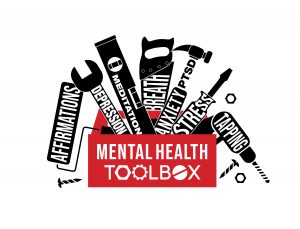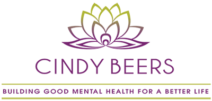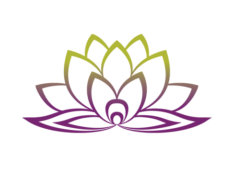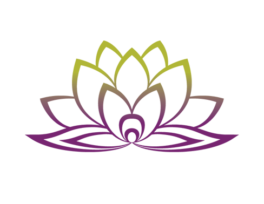
Since I've had anxiety and trauma for pretty much the majority of my adult life, I created a toolbox for myself. Let me explain. When I first got diagnosed my doctor immediately put me on anti depressants and Ativan. I was on these for well over 20+ years. One day I decided I didn't want to take it anymore. So me being me (a total geek and dweeb) I found a book to ween myself off. Let me just tell you how hard that was. There were times I felt like I was withdrawing from opiods. It was tough. Then I found Tom.
For those of you who don't know Tom, he's my co-author. He's also an amazing psychologist. He immediately started me on Neurofeedback. What is Neurofeedback?
"Neurofeedback, also known as EEG (electroencephalogram) biofeedback, is a therapeutic intervention that provides immediate feedback from a computer-based program that assesses a client's brainwave activity. The program then uses sound or visual signals to reorganize or retrain these brain signals" (https://www.psychologytoday.com/us/therapy-types/neurofeedback).
This is where I started creating my toolbox. After all the drugs were out of my body, I started to line up some things which would work for me. I used my yoga background and found the following:
1) Emotional Freedom Technique (EFT/Tapping) - Holy cow what an amazing thing to learn. I use this every day, twice a day. It keeps me sane. It's great for anxiety that's for sure. Here's the best part, you can learn it for free on their website! Or I can teach you.
2) Breathing - Yep! Something as simple as breathing can help with anxiety too. My favorite is called three part breathing.
3) Meditation - I can't live without it. There are many who say "Oh I can't meditate." Frankly, you just haven't found the right one to use. Did you know there are 28 different types of meditations? Also using Insight Timer or the Calm app are great. It's good to note here Calm always puts their app on sale after Black Friday for 1/2 price. So wait and take advantage of it.
Realize this, medication is a great thing. Modern medicine has done wonders for mental health. I personally just didn't want to be on it anymore. So I don't knock modern medicine; believe me.
This is why I created the Mental Health Toolbox. We all need a toolbox right? So what is the Mental Health Toolbox?
The Mental Health Toolbox is a 6-week workshop which meets once a week for about 1.5 – 2 hours. In it, we look at:
Anatomy of Mental Health – The definitions, differences, and understanding of anxiety, depression, PTSD, and stress·
How it Affects the Body – Mental Health does affects the body and it can have long term affects. We delve into the anatomy of where and how it affects the body and how it can be reversed.
Differences between Teen Anxiety/Depression and Adult Anxiety/Depression – Looking at how they’re different from different ages ranges. Depression in Teens and Adults
The Brain & Body – Understanding how the brain works with anxiety, depression, PTSD, and stress how it affects the body, and the long term affects in can have.
Triggers – What triggers anxiety, depression, PTSD, and stress
Emotional Freedom Technique (EFT/Tapping) – EFT is using acupuncture points with your fingers to help relax the central nervous system.
Meditation – by using a mantra-based meditation helps the mind from racing, keeps you present, and calms the central nervous system,
Pranayama (breath) – There are two different breathing techniques learned to help simply relax the sympathetic nervous system
Chakra’s – how they’re affected in anxiety and the body,
Affirmations – Affirmations are a great way to change how you feel about yourself and your life,
Body Positivity and how you view your own body,
Self-Compassion, how to have it and how to keep it.
So my dear friends, this is why keeps me sane. Try it creating a toolbox for yourself. If you want some help, I'll help you. I'd be happy to.


